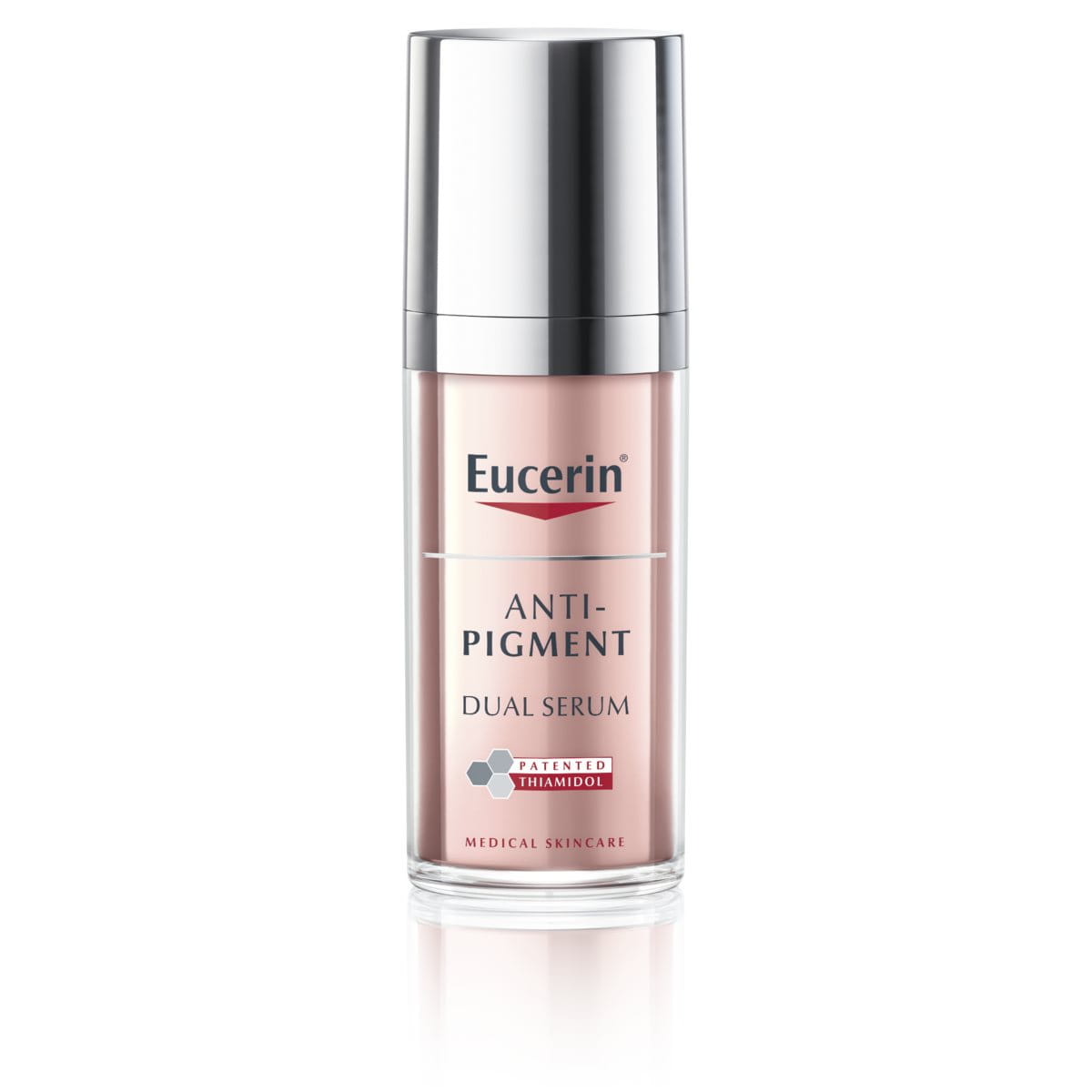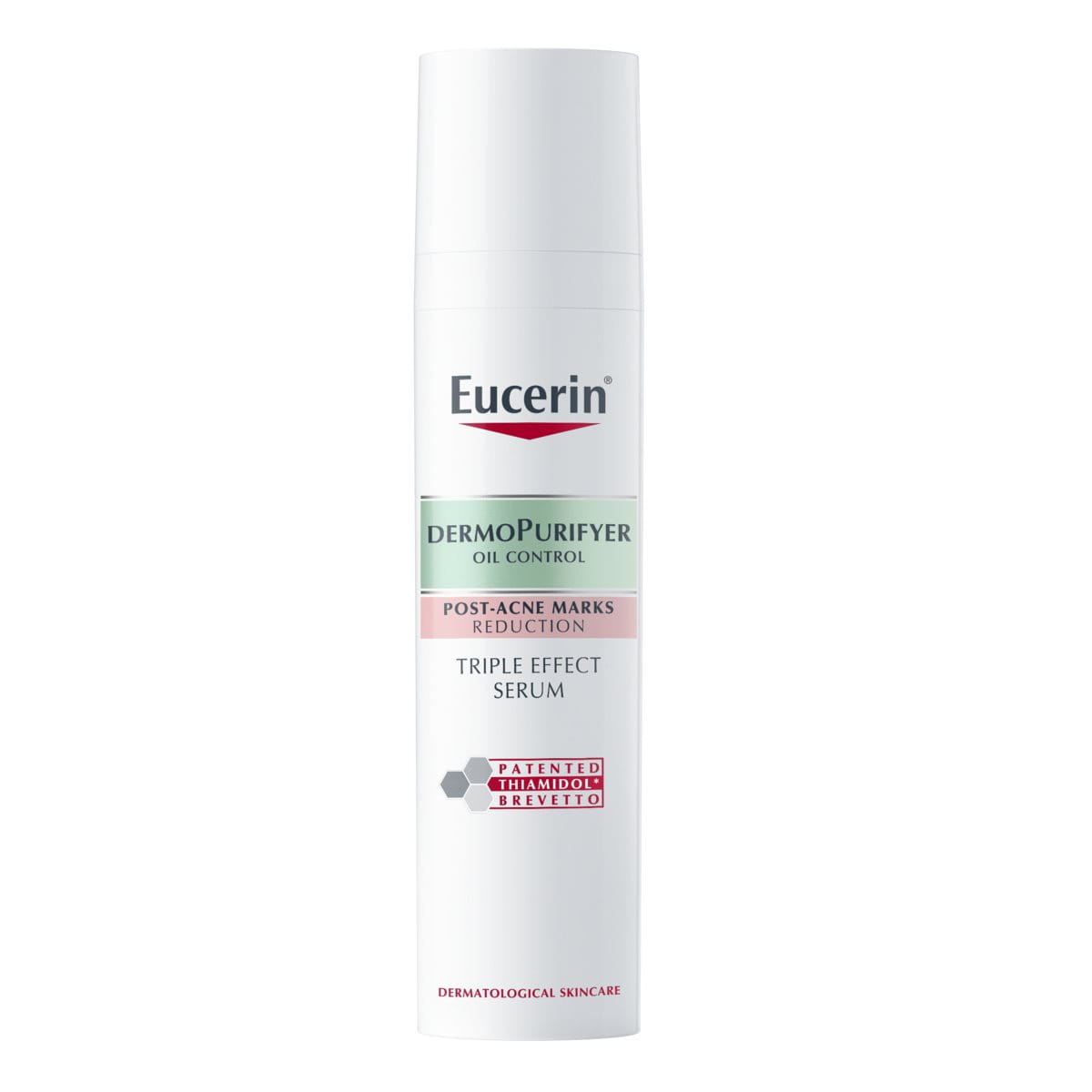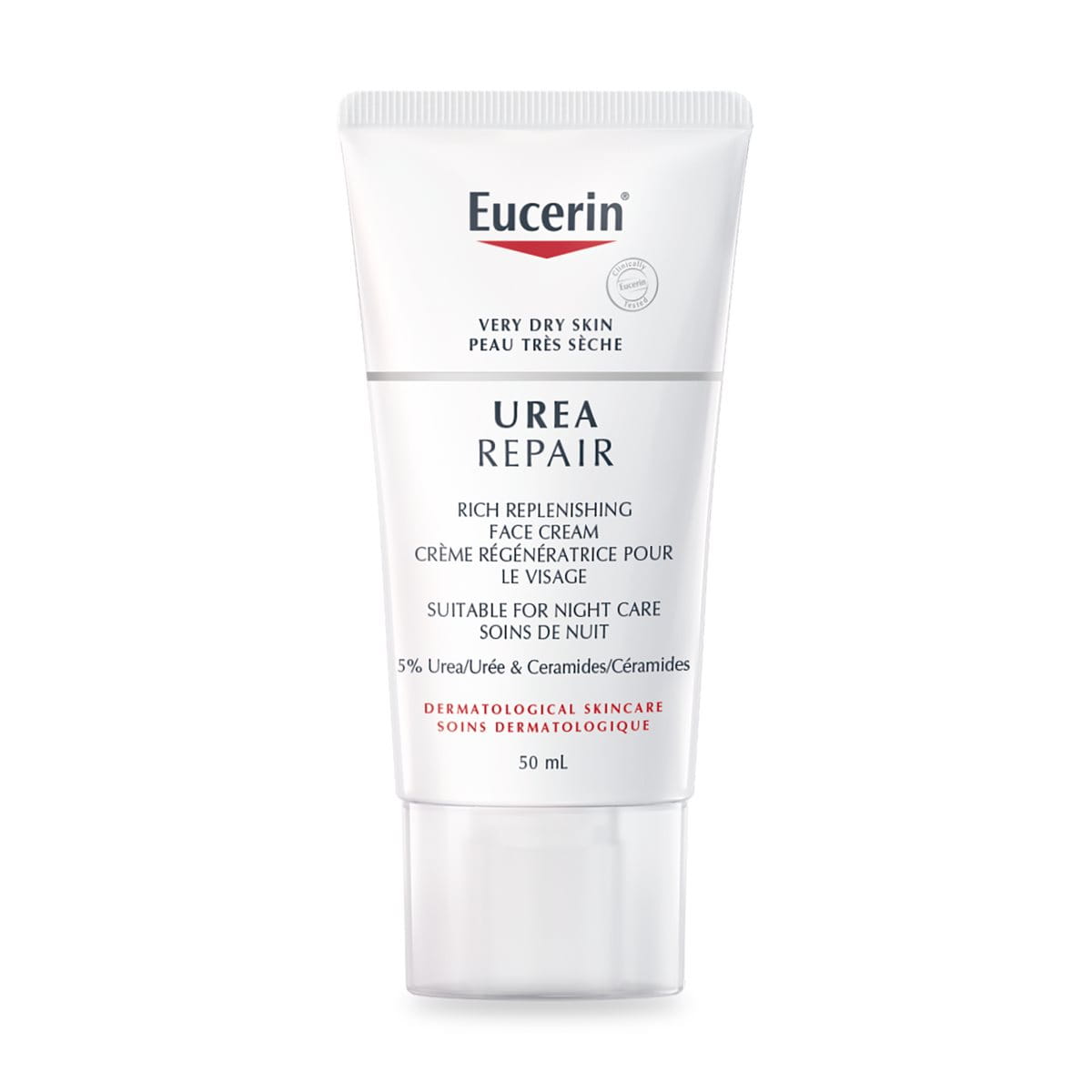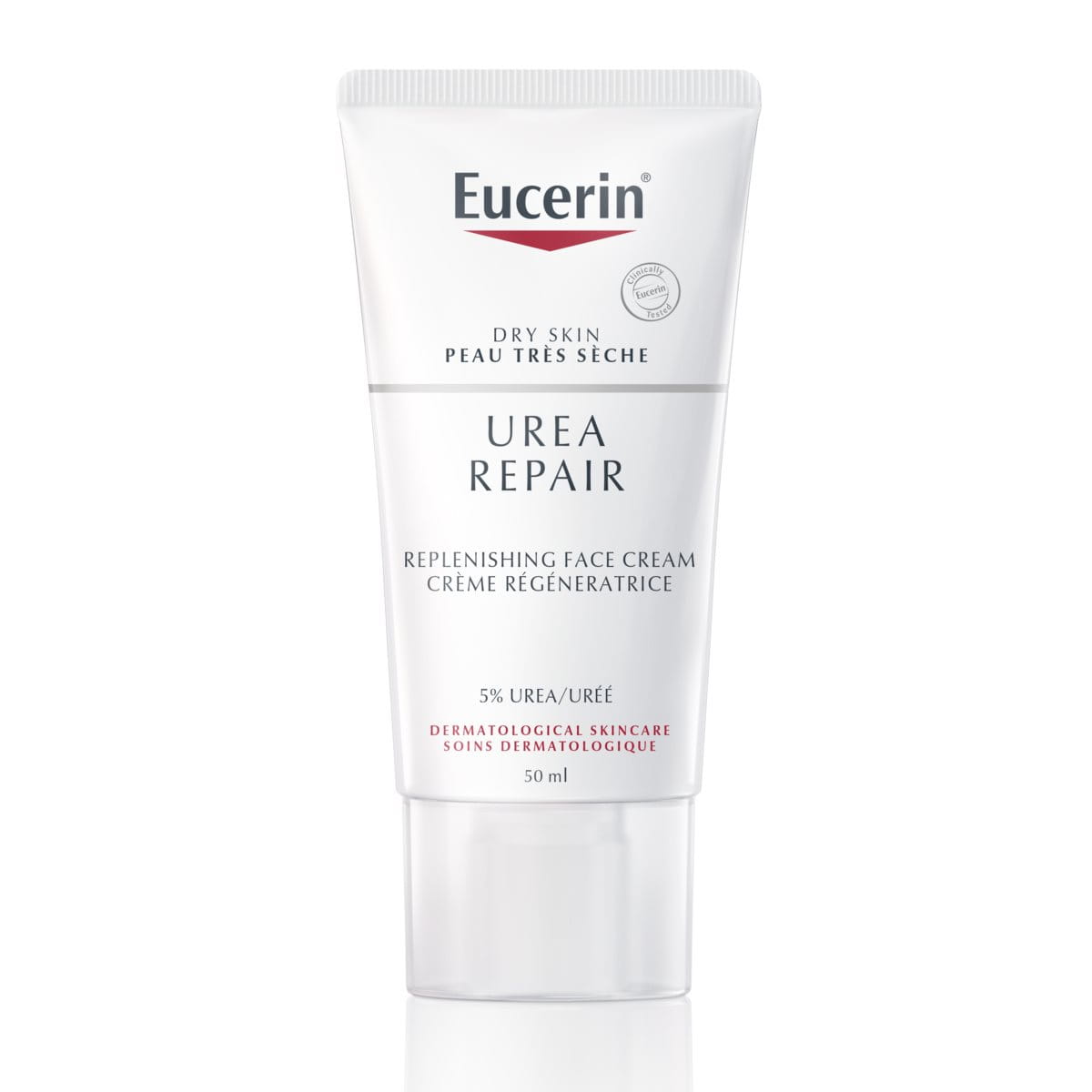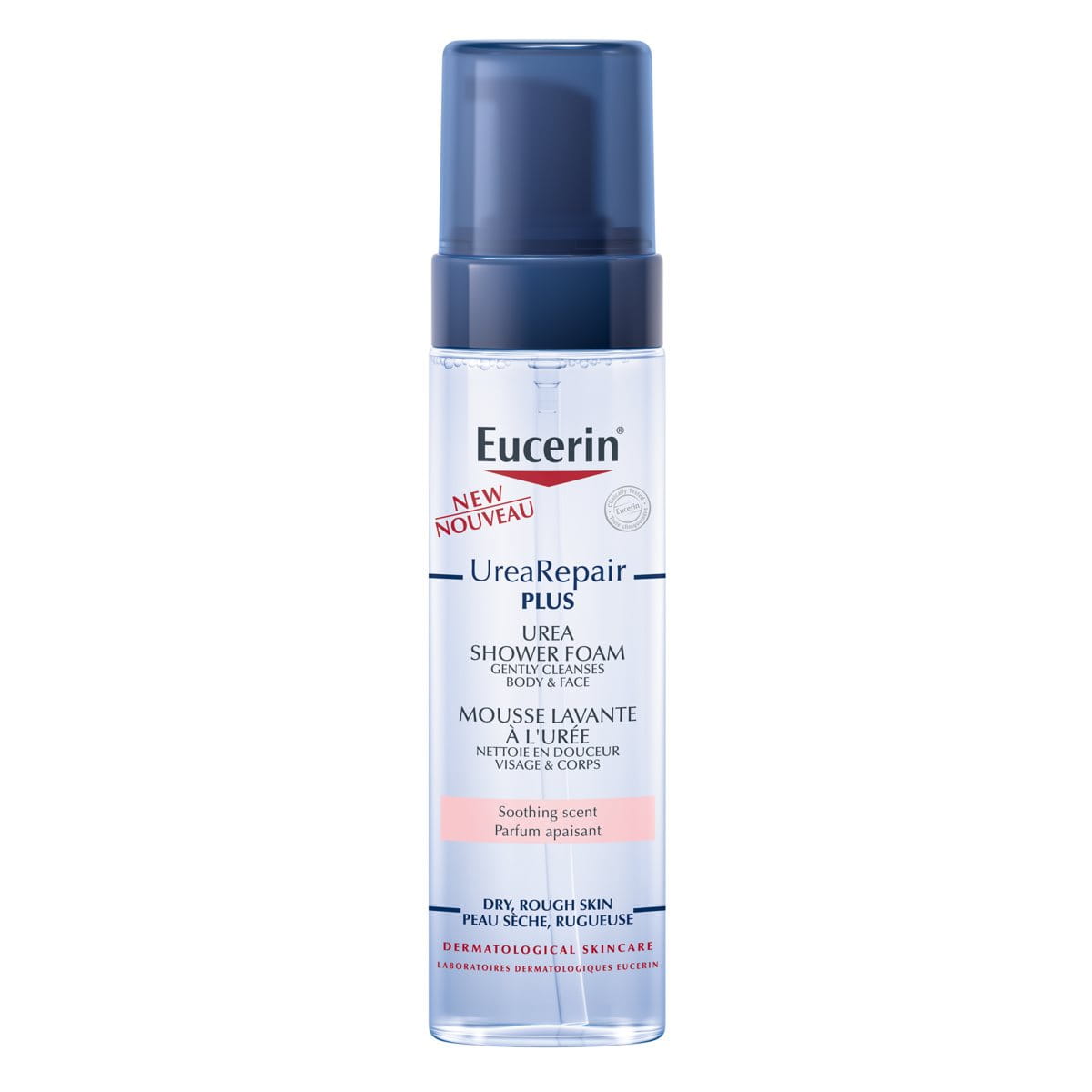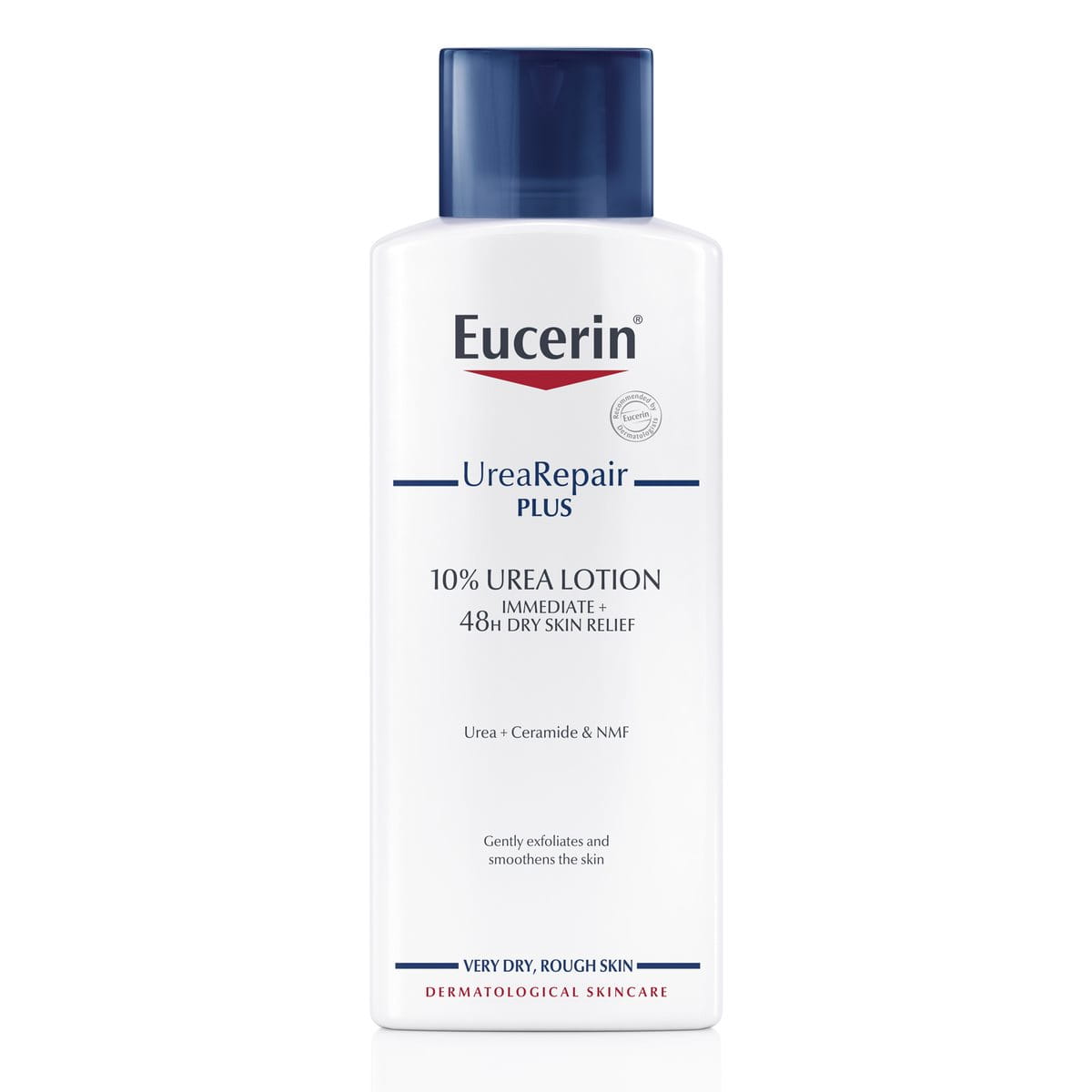Facial psoriasis is a type of psoriasis that causes thick, red and dry patches on the face. It is a chronic condition and while the exact causes aren't known, this guide runs through the recognised causes, symptoms and known treatments.
What is psoriasis on the face?
Psoriasis is an autoimmune, inflammatory and non-contagious skin condition that causes skin cells to develop rapidly. This leads to scaly, red or white patches of skin. Experts believe that between two to three percent of people worldwide are affected by psoriasis.
It is very rare for patients to only suffer from psoriasis on the face, as it usually occurs after scalp psoriasis. Roughly half of those affected by psoriasis will suffer some facial involvement, but because the skin on the face is thin and sensitive, it's more complicated to treat.
Most experience mild psoriasis on the face, however it can also be very extensive, spreading to the hairline, ears, forehead and neck.
1) Hairline psoriasis: An extension of scalp psoriasis, where thick, bright red plaque builds beyond the hairline, down to the forehead and in and around the ears.
2) Sebo-psoriasis: An overlap of seborrheic dermatitis and psoriasis, with patchy involvement of the hairline. This causes thin, pink scales on the eyebrows, eyelids, beard area and nasolabial folds.
3) True facial psoriasis: Can affect any area on the face, causing separated, scaly and red plaques which are sometimes symmetrical. Usually associated with psoriasis on other parts of the body, potentially part of guttate psoriasis, plaque psoriasis or erythrodermic psoriasis.
Symptoms of facial psoriasis
Lesions appear as red or purple plaques coming down from the scalp, sometimes forming silver scales. These can flare for weeks or months, but mild psoriasis on the face should reduce to become less noticeable with treatment.
At its most severe, facial psoriasis can cause serious complications. It is rare that psoriasis only develops on the face, as some sufferers experience both facial and scalp psoriasis, for example, or even on other areas of the body.
Psoriasis on the face usually affects the following parts of the face:
- hairline
- upper forehead
- ears (normally in external ear canal, not inside)
- eyebrows
- nasolabial folds (skin between the upper lip and nose)
While extremely rare, psoriasis of the eyes leads to dryness, inflammation and can impair vision. The eyelids can be affected, causing purple discolouration and swelling, which can force the eyelashes to turn upward or downward, resulting in increased harm to the eyes.
For a small number of sufferers, facial psoriasis can also cause lesions on the gums, inside the cheeks or nose, and on the lips. Psoriasis in these areas of the face is uncomfortable, impacting a person's ability to swallow and chew food.
As well as the physical impact of psoriasis on the face described above, the condition may also impact a patient's mental health due to the presence of thick, scaly plaques on highly visible parts of the face. Psychological effects like anxiety or depression are possible triggers for future flare ups of facial psoriasis.
Causes of facial psoriasis
Psoriasis on the face is caused by the same factors as psoriasis in general. While scientists don't know the exact causes, your immune system and genes are key factors.
It is believed that psoriasis occurs when something is wrong with the immune system. Inflammation in the body leads to skin cells growing too quickly - causing a build-up of plaques. Doctors also estimate that around 40% of psoriasis patients have a family member who also suffers with the condition.
In terms of facial psoriasis, exposure to ultraviolet radiation, for instance from the sun or a tanning bed, can aggravate the condition, as can the yeast Malassezia. Facial psoriasis can be quite persistent, but its severity is dependent on other factors including the weather and stress. The following factors can increase your risk of psoriasis in general:
- Stress: Stress affects the immune system, so high stress levels are linked to psoriasis.
- Family history: Though you can’t catch psoriasis on the face, you could be more likely to get the condition if it runs in your family, especially if both your parents have it.
- Smoking: The risk of psoriasis is increased if you smoke, while smoking also worsens the severity of psoriasis symptoms in those who suffer from it.
- Diet: Research published by nutritionists in 2016 found that psoriasis may be more common in people who have dietary factors such as gluten sensitivity.
- Viral and bacterial infections: People with compromised immune systems and persistent infections, such as young children or those with HIV, have an increased risk of psoriasis.
- Obesity: Those who have inflammatory factors that occur with obesity are more at risk, because some inverse rashes tend to form in skin folds and creases.
Psoriasis on face treatment
There is no way to get rid of psoriasis on the face, but a range of treatments exist which can improve symptoms and the appearance of psoriatic skin patches. Facial psoriasis is a disruptive form of the condition and while research into a full cure continues, topical therapy enables most patients to control the symptoms over time. A doctor should examine the face before recommending what treatments to use, to ensure they are not too strong or will irritate the facial skin.
Topical creams or lotions containing corticosteroids are effective at all times, but they should not be used continuously for long periods, so doctors often reserve them for flare-up phases. Using these for extended periods can make the skin thin and lead to easy bruising or tearing.
Topical Steroid Withdrawal
The prolonged use of strong topical steroids may suppress the body's own normal steroid production and create a dependence. Discontinuing the use of topical steroids after the skin has become dependent on them can be difficult and trigger a different type of condition called Topical Steroid Withdrawal. TSW is characterised by dry, red skin with a burning sensation, possibly even in areas where there had been no symptoms previously and some people report worse symptoms than their original condition.
Topical corticosteroids have anti-inflammatory properties, reducing both the rate at which the patches form and the irritation that comes with them. Moderate strength topical corticosteroids are often used for psoriasis on the face and other areas that require stretching or flexing. They are often used in combination with emollients and moisturisers.
Topical steroids on the whole are a safe and effective way to treat psoriasis, however their use must be monitored to ensure they do not become damaging in the long-run.
Treating facial psoriasis at home
As well as using topical treatments, patients can also do the following to help manage facial psoriasis:
- Apply a moisturiser recommended by your doctor to reduce scaling as part of your skin routine
- Keep the skin clean by using gentle, non-soap cleansers
- Don't pick or peel the plaques, as this can exacerbate symptoms
- Use sun cream when exposed to ultraviolet rays
- Try to reduce stress levels through yoga or meditation, as this can trigger future flare ups
- Make a note of the factors that contribute to psoriasis flare-ups so you can avoid them in future
- Consider emotional support or therapy if severe symptoms are affecting your mental health
The Eucerin UreaRepair range can help manage the symptoms of facial psoriasis. The entire range has been created with calming ingredients for daily use to support your skin’s natural barrier, keep it healthy and provide relief from irritation or redness. Both the UreaRepair Replenishing Face Cream and the UreaRepair Rich Replenishing Face Cream work together to protect the skin during the day and revitalise it during sleep.
Our brand values

We deliver a holistic dermo-cosmetic approach to protect your skin, keep it healthy and radiant.

We work together with leading dermatologist and pharmacist partners around the world to create innovative and effective skincare products they can trust and recommend.

For over 100 years, we have dedicated ourselves to researching and innovating in the field of skin science. We believe in creating active ingredients and soothing formulas with high tolerability that work to help you live your life better each day.
